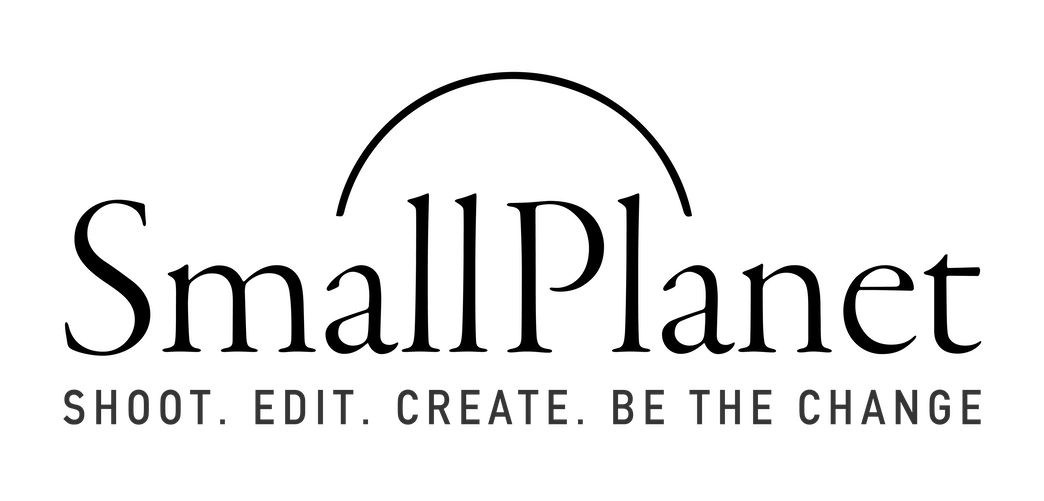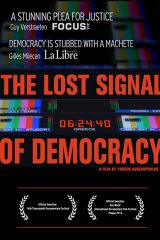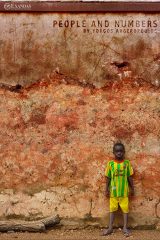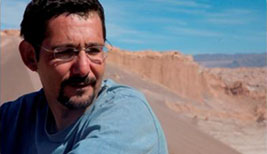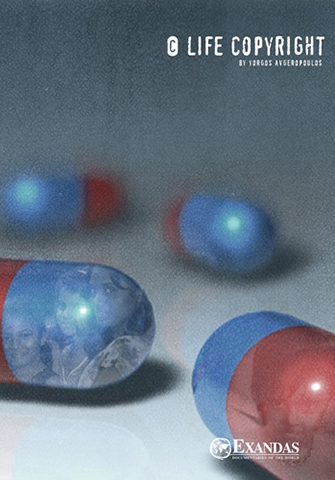
© Life Copyright
Dir: Yorgos AvgeropoulosIndia is known as the global medicine production factory. It has a thriving pharmaceutical industry that produces quality medicine at affordable prices.
These are the so called generics, copies of the original drugs produced by the big pharmaceutical companies of the West. They are equally effective, but are sold at incomparably lower prices than the originals. That is why they are of incalculable value to poor people in India and the, so called, developed world.
In the face of competition, the big pharmaceutical companies fight back holding a powerful weapon in their hands, the patents, attempting to strike India’s generic drug industry and consolidate their monopoly worldwide.
It is a real war of interests, where corporate profits are, more literally than ever, juxtaposed to human lives.
The “© Life Copyright” follows the case of the Swiss company Novartis that sued the Indian state, starting thus a landmark legal battle. A battle so important that could threaten the access of billions of poor people around the world to affordable lifesaving drugs.
Watch the Film Now!
Choose the language you prefer and stream the film in Full HD from any digital device. Enjoy your private screening!
Buy the DVD
€9,99
Public Screening
Are you interested in organizing a public screening of our film? Send us an email with your inquiry and we will be glad to assist you!
Educational / Library Use
Are you interested in enriching the library of your institution with our film? Contact us and let's create together an informed public!
- DURATION: 49min
- AVAILABLE IN THE FOLLOWING LANGUAGES: English | Greek
- AVAILABLE VERSIONS: English (49min) | Greek (49min)
- YEAR OF PRODUCTION: 2013
- Directed by: Yorgos Avgeropoulos
- Written by: Yorgos Avgeropoulos, Georgia Anagnou
- Produced by: Georgia Anagnou
- Director of Photography: Yiannis Avgeropoulos
- Production Manager: Anastasia Skoubri
- Editing: Vasilis Magos, Anna Prokou
- Original Music: Yiannis Paxevanis
PRODUCTION NOTES
Mr. Noor Islam Sikh lives in a poor densely populated neighborhood of Mumbai, Bollywood’s capital, which is with 20 million inhabitants India’s modern commercial and industrial center. In the shadow of the city’s skyscrapers and behind the shroud of growth, lies his house, a 5 square meter shack, where he, his wife and seven-year-old daughter are trying to make ends meet.
Amongst all the financial difficulties, their everyday life became even more difficult, when Mr. Noor was diagnosed with leukemia three years ago. Since then, he follows a specific treatment of vital importance to his survival. Every day at noon, he has to take a 400mg pill, which ensures more time and a better quality of life for him.
“Before, my body hurt and when I got up I felt dizzy. I walked a little on the street and was soon after short of breath. Now, I don’t have this problem”, he tells us. “With this medicine I feel very good.”
The drug responsible for Mr. Noor’s health improvement is called Veenat and is a generic. It is a copy of Glivec, an original drug introduced in 1992 by the Swiss pharmaceutical Novartis and which is believed to have brought upon a real revolution in the treatment of chronic myelogenous leukemia. “It became known as the magic capsule, as it forever changed the way in which future cancer research will be conducted. The patients, who receive it, have very high survival rates, exceeding the 10 year time frame”, proudly says Ranjit Shahani, Vice Chairman and Managing Director of Novartis India.
Indeed, Glivec, which contains a lifesaving active substance called imatinib, has managed to greatly increase the life expectancy of patients. Since then, generics like Veenat, the drug Mr. Noor takes, contain the exact same active substance.
Both drugs, the original and the copy, have been approved by the appropriate supervisory agencies and have the same therapeutic effect on the patient. But there is also an important difference between them.
THE ECONOMIC VALUATION OF HOPE FOR LIFE
The original medicine by Novartis is sold in the Indian market for $2,400 a month, whilst the copy produced by Natco, a large local pharmaceutical company, costs $200.
It has globally been observed that generics are usually 20 to 80% cheaper from the original drugs!
This difference in price is astronomical for India’s poor. “I work in a shop where I polish gold. My wife also works at home, sewing clothes. Our monthly income is 6,000 rupee”, confesses Mr. Noor. With his family income barely reaching 150 euro a month, he is unable to buy even the medicine’s copy, which he receives thanks to a nongovernmental organization, the Cancer Society.
Dr. Dhananjaya Saranath, the organization’s head doctor, notes angrily: “Both drugs have the same effectiveness. So, I think there is no excuse for any company to sell this medicine at a price ten times higher, just because it is the original”.
Dr. Saranath’s anger can be understood if one considers that in India, 30% of the population lives below the poverty line and has to ensure its survival with less than $2 a day.
“We have to talk about the drug’s worth and not its price. What is a mother’s smile worth when her child is saved from a deadly disease? What can be the economic value when you improve life expectancy? I think we should look at those things’ worth and not just do a numerical equation” claims Ranjit Shahani, director of Novartis.
“The company has to consider that disease strikes both the rich and poor alike. Rich people can however, take the medicine and get well. If someone is poor, how can s/he buy such expensive drugs?” says Mr. Noor’s wife with tears in her eyes. “This price is unthinkable to us”.
THE POOR MAN’S PHARMACY
Nowadays, when global commerce is defined by international regulatory rules, it seems difficult for a state to establish politics that will cater to its population’s needs. That is however, what Mahatma Gandhi, independent India’s patriarch, did, highlighting self-sufficiency as a major axis of his political philosophy in the post-colonial era. He characteristically believed that his country did not need western technology to be independent on clothes, food and medicine.
So since its establishment, the Indian state had formed a patent system, which did not recognize patents in pharmaceutical products. This policy made it possible for the local generics industry to develop and cover the great needs of almost 1.2 billion people.
“Without the benefits of not having patents, India would not have been able to reduce the cost of drugs as much as it already has”, says Rajeev Nannapaneni, director of the Indian pharmaceutical Natco.”If you cannot produce locally to reduce costs and create competition you become confined in monopoly”, explains in more detail Leena Menghaney of Médecins Sans Frontières.
“What India basically said was that because companies were overpricing medicines, Indian pharmacists would have to build facilities, where they could make their own drugs. Those were public sector facilities that nourished in a way the industry in order to make the medicines we ourselves needed. Of course, once this industry grew other developing countries, as well as UN agencies and the MSF began to buy these drugs from the source itself”, concludes Menghaney.
It is estimated that the Indian pharmaceutical industry is currently the third largest in the world. Drugs produced in India are sold in the USA, Europe, South America, while at the same time they are used almost exclusively in developing countries of Africa. No wonder why India is internationally known as the pharmacy of the poor.
Thanks to the existence of generic drugs countries can devise a comprehensive policy to tackle diseases such as AIDS, which often threaten to take epidemic proportions. For example, in the 90s before generic drugs were introduced to the ARV (antiretrovirals) market, AIDS treatment cost about $10,000 a month. Now, it costs less than $250.
The same happens with cancer in India. “In our country, we have nearly one million new cases of cancer each year,” explains Dr. Lalit Kumar, professor of oncology at the University Hospital of AIIMS in New Delhi. “If we have to use the original drug, the cost will go up three times or more. In this case, I do not know if the government could provide funding for the treatment. If we did not have generic drugs, we most likely could not provide the same services.”
THE WAR OF COPYRIGHT
On the other hand, large pharmaceutical companies such as Novartis, argue that they should be rewarded for their research, since they offer society innovative medicines to treat deadly diseases.
“The challenge is that research today costs huge amounts of money. If you do not allow a pharmaceutical company to have a fair return, it will just disappear and the shareholders will leave. And this is logical. So the issue is logic and not profit”, says Ranjit Shahani of Novartis and concludes, almost threateningly: “I think we should view it in a logical and not emotional manner. Because ultimately tomorrow you will not have any drugs that you can copy.”
The international legal system strongly defends the companies’ argument. In 1995, the World Trade Organization was founded. The newly launched then and powerful organization now went on to establish the famous TRIPS agreement, which determines the trade rules on intellectual property rights among member countries.
Therefore, under this agreement, every member state of the WTO is obliged to recognize patents on innovative pharmaceutical products. Thus, the companies are provided with the exclusive right to sell the product in the market for a certain period of time, of usually 20 years. In this way, the production of cheaper generics gets postponed for some years and the company is free to set the price of the drug without competition or any other restriction.
“Essentially, the patent is a form of prize given together with the monopoly of the substance for a number of years, in exchange for disclosing later on this patent’s technical details to the public, through the decision-makers”, explains the Patent Office of India.
The Indian state, wishing to also get on the chariot of neoliberal development, perhaps even under pressure in order not to isolate itself, became from the very beginning a member of the WTO. After a transitional period, in 2005, for the first time in history, India recognized patents on pharmaceutical products.
“After they began to grant patents, how many drugs have been researched, how many innovative medicines have been released in the market?” asks Vikas Ahuja, from the Organization Delhi Network of Positive People (DNP +).”If you look at the data, you will see that there used to be more innovative medicines coming on the market than they do now.” Vikas speaks angrily, considering that the availability of generic drugs is critical to the survivability of thousands of people suffering with AIDS, as he does. And now patents are threatening to block their production for several years.
“We should not play with human lives. These drugs are a necessary resource for life, such as water or air. If someone starts to make a profit from such a necessary commodity, it will make the lives of ordinary people more difficult”, he says.
“They say we should stop having patents? This is absolutely absurd”, replies the spokesman of Novartis.
EVERGREENING – A NICE WORD FOR A BAD PRACTICE
Patient and activist organizations accuse large pharmaceutical companies of abusing the privilege accorded to them by the patent system. Using a common practice, called evergreening, they attempt to extend the monopoly of certain products in the market.
“If you ask me what it means in two lines, you take the same drug and you patent it again and again and again, in different forms”, says Leena Menghaney of MSF. “You don’t present any innovation. You just take the same drug and change its standardization. For example you take a pill for adults and put it in children’s syrup. And that may become a completely different patent. Thus, they can continuously increase their profit from the same innovation. That is the meaning of evergreening. It is an operational technique to maximize profits. It may not serve the public interest, but this is what companies do. Why invest in a new drug when they can expand their profits patenting the same drug again and again?”
Although the Indian state adopted the system of patents, at the same time it raised a strong shield against this abusive practice.
Section 3d, is the article in the Indian legal framework that sets strict conditions for maintaining innovation, when granting a patent on a medicinal product. Having that as their guideline the officials of the Indian Patent Office rejected Novartis’s patent application noting that it contained elements of evergreening, something the company denies. So, the company sued the Indian state in 2006, starting a long legal battle, the last chapter of which was played out in the country’s Supreme Court from September 2012 until April 2013.
THE POOR PATIENTS’ VICTORY
“Glivec has been patented in 40 countries we have applied to”, says Ranjit Shahani, director of Novartis India Ltd. “In India a patent application was filed, but got rejected. Novartis was naturally keen to guarantee, wanted to see how innovation is valued in India and that is why we fight here for the patent to be acknowledged”, he says, unable to hide his irritation about this conflict.
“It does not deserve a patent recognition, because there is no originality”, answered the Patent Office of India. “Some compounds already known in 1993 cannot be patented. There is no novelty.”
“When they got the patent in the U.S., they were given a monopoly for 20 years. At that time, it was indeed a new compound. But during that time India did not participate in the patent system. We cannot go back 10 years, and give a patent on a molecule of 1992”, adds Leena Menghaney of MSF.
80% of the medicines used by the MSF in their mission to provide life for patients around the world are generic drugs from India. That is why the organization is one of the Swiss company’s most ardent opponents in this case, as it believes that any vindication of Novartis would open Pandora’s Box, prompting other companies to follow the same practice, with painful consequences.
“It’s not that drugs will disappear tomorrow from MSF clinics. But in 10 years will we be able to cure cancer, cure hepatitis, tuberculosis, HIV? The answer is no. In 10 years, without generics the MSF will not be able to provide their services in the same way we have done for example in sub-Saharan Africa, Central Asia or Latin America.”
“Novartis claims that the case is not related to monopoly or skyrocketing prices”, answers Vikas Ahuja and the Organization Delhi Network of Positive People (DNP +) that also highlights the immediate threat.“If this is not the reason, then why take legal action? If this is not the reason, return to your office and start working for the best interests of society, instead of spending your time at the courts. If the patent has nothing to do with profits, then why go to court to address this issue?”
“India has become a ‘brazen’ competitor”, says Rajeev Nannapaneni, director of Indian Natco.”If India has become the key supplier of these goods, then the rest of the planet can do so as well. I think that’s the issue.”
On 1 April 2013, the Supreme Court of India issued its final decision, at last putting the issue to rest after 7 years. It dismissed Novartis’s appeal, on the grounds that the renewed synthesis of Glivec does not meet the “innovation or creativity” criteria required by law.
The news went around the world and scattered relief to millions of poor patients.
The great interests at stake do not leave much hope that something similar will not be attempted again in the future.
But this important battle was finally won.

